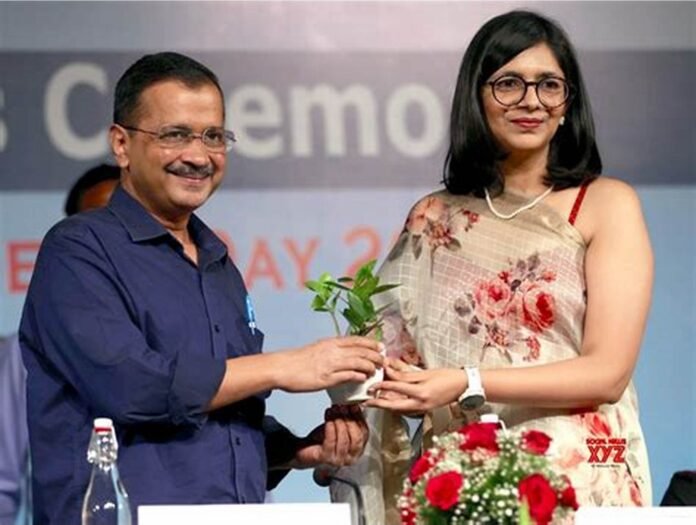Recently, Swati Maliwal, the dynamic chairperson of the Delhi Commission for Women (DCW), found herself at the center of a dramatic courtroom showdown as she broke down in tears while facing allegations of manipulation and fabrication. The poignant moment came as Bhibhav Kumar, representing the accused, accused her of orchestrating a narrative tailored to her own agenda. Maliwal’s emotional reaction, juxtaposed with Kumar’s assertions, underscores the complex interplay of power, perception, and personal stakes in the pursuit of justice.
Swati Maliwal, known for her unwavering commitment to women’s rights and social justice, has been a prominent figure in Delhi’s public sphere for years. As the head of the DCW, she has championed numerous causes and spearheaded initiatives aimed at combating gender-based violence and empowering marginalized communities. However, her tenure has not been without controversy, with detractors accusing her of politicizing the commission and using it as a platform to further her own political ambitions.
The courtroom drama unfolded against the backdrop of a high-profile case involving allegations of sexual assault, with Maliwal playing a key role in advocating for the victim and demanding swift action from the authorities. However, as the proceedings took a heated turn, she found herself on the defensive as Kumar launched a blistering attack on her credibility and integrity.
Kumar’s assertion that Maliwal had manufactured evidence and manipulated the narrative to suit her own agenda struck at the heart of her reputation and standing in the public eye. For Maliwal, who has dedicated her life to fighting for the rights of women and marginalized communities, the accusation cut deep, challenging the very core of her identity and purpose.
As emotions reached a crescendo in the courtroom, Maliwal’s tearful response was a raw and visceral expression of the personal toll exacted by the relentless pursuit of justice. In that moment of vulnerability, she laid bare the emotional weight of her convictions and the profound sense of responsibility that comes with advocating for those who have been silenced and marginalized.
Yet, amidst the turmoil and uncertainty, Maliwal’s emotional outburst also served as a powerful reminder of the human element at the heart of the justice system. Behind the legal arguments and procedural formalities lie real people with real lives, each grappling with their own fears, hopes, and vulnerabilities. Maliwal’s tears were not just a sign of weakness, but a testament to her humanity and empathy in the face of adversity.
The courtroom confrontation between Maliwal and Kumar lays bare the inherent tensions and contradictions that permeate the quest for justice in a complex and often flawed system. On one hand, there is a pressing need for accountability and transparency in the pursuit of truth, particularly in cases involving allegations of sexual assault and abuse. On the other hand, there is a danger of individuals being unfairly vilified or scapegoated in the court of public opinion, with little regard for due process or the presumption of innocence.
As the case continues to unfold, it serves as a sobering reminder of the complexities and challenges inherent in the pursuit of justice. While the legal proceedings may ultimately provide answers and closure for those involved, the emotional toll exacted on all parties underscores the need for compassion, empathy, and understanding in navigating the fraught terrain of human suffering and resilience. In the end, it is not just about winning or losing in the courtroom, but about upholding the dignity and humanity of all involved, even in the face of adversity.
In the aftermath of Swati Maliwal’s emotional courtroom moment, the case has become a focal point for broader discussions about the complexities of justice and the intersection of power dynamics, personal integrity, and advocacy. While the legal proceedings may offer resolution for the specific allegations at hand, the emotional intensity of the courtroom confrontation serves as a catalyst for deeper reflection on the challenges and responsibilities inherent in advocating for marginalized communities. Maliwal’s tears, far from signifying weakness, embody the profound empathy and unwavering commitment to justice that lie at the heart of her work, reminding us all of the human faces behind the legal battles and the imperative of compassion in the pursuit of truth and accountability.

